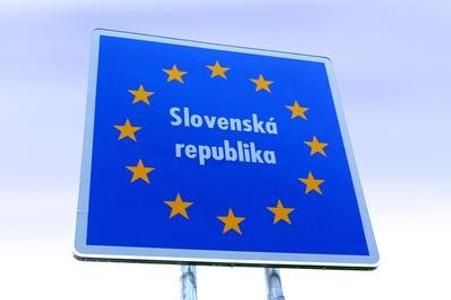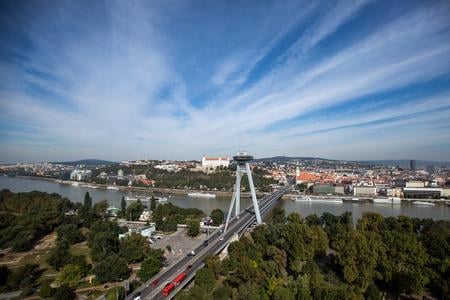Dealing with local authorities
Why intern in Bratislava?
The location and size of Bratislava make it ideal for students interested in European culture who want an area that they can learn quickly and easily. As an English-speaker in Bratislava, your language skills will be greatly valued by employers.
Bratislava’s rich historical sites, vibrant downtown architecture, and accessible hiking trails also make the city a great place for you to explore on your own or with colleagues and friends.
How do I find an internship in Slovakia?
The easiest but most expensive approach is to apply (and pay) for an international program that will place you in an internship. These programs can handle the logistics of organising and coordinating the internship for you, but they can cost thousands of dollars, excluding travel costs. The AISEC program does offer internship and volunteers programs in Slovakia for a lower-cost fee, and participants have the possibility of receiving an accommodation and living stipend.
A cheaper option is to look for government-sponsored internship programs or grants that might cover or offset the cost of your time abroad. Students in the EU and participating countries accepted into taking part in the Erasmus+ internship program can look for internships in Slovakia through Placement Slovakia.
US students can apply for a State Department internship in Slovakia to work at the US Embassy in Bratislava, and recent graduates and those in graduate programs can also apply for teaching and research position fellowships in Slovakia offered through the Fulbright Student Program.
The most challenging - but most rewarding - way to find an internship in Bratislava is to look for it yourself. Reach out to companies, schools, and NGOs that operate in English and are geared toward your interests. You don’t need to have a contact at the organization to ask if they offer internships, and your skills as an English speaker may be useful in a variety of organizations.
Can I earn funding for my internship abroad?
An internship abroad may not be paid, but you can talk with your host organisation about possible assistance with accommodations, transportation, or lunches.
If your university has an international education center or study abroad program, find out if they offer scholarships or grants that can be applied to internships abroad. They may be able to connect you with other private or public sources of funding that support experiential learning.
U.S. undergraduate students who are recipients of Federal Pell Grants can also apply for the Benjamin A. Gilman International Scholarship Program, which could award up to $5,000 for an internship in Slovakia.
Will I need a visa?
http://www.slovak-republic.org/visa-embassies/
For a stay of up to 90 days, there are no visa requirements for citizens of the US, Australia, Canada, or the UK.
Slovakia is part of the Schengen Area, a territory of 23 EU countries and two associated countries of the European Economic Area that have agreed on common visa regulations and the abolition of border controls. Any foreigner with a Schengen Visa does not need to apply for a special visa for Slovakia.
What is the best way to travel to Bratislava?
Flying to Vienna and taking a bus to Bratislava is typically the cheapest way to reach the city. The bus trip from Vienna to Bratislava takes about an hour and costs approximately €5. The Bratislava airport is also connected with a number of European cities, mostly by low-cost airlines.
Residence and work permits are not required if your stay is less than 90 days.

Will I have to deal with local authorities when I move to Bratislava?
Nope. For stays that are less than 90 days, you will not need to contact the authorities.
How many hours can I work per week?
The normal workweek is 40 hours, though you may agree on something more flexible with your organisation or employer.
How do I cover my medical costs during my stay in Slovakia?
You can receive medical services at a private clinic in Slovakia, though these could be costly. Working through a third-party organiser or university may give you free or reduced-cost travel insurance that will include health coverage. If you have health insurance in your home country, you can add an international plan to your coverage.
Where can I live?
It is a good idea to join Facebook groups for foreigners in Bratislava looking to rent out or add roommates to your flat. You can also explore housing complexes geared toward students, which can offer private or dormitory-style accommodations. Websites like airbnb.com and Homestay.com can match you with local residents of Bratislava, and Erasmus students can search an online portal for roommates and flats verified by the program.
Do I need to speak Slovak?
Speaking Slovak is not necessary to live in the city, but as with travel to any country, it helps to come with some knowledge of key phrases. If you work in Bratislava, you can expect to find English speakers in many shops and restaurants, and Bratislava teenagers and young adults have often learned English in schools.

You should not expect, though, to hear English everywhere around you - though this can be helpful for learning Slovak or simply for further immersing yourself in a new environment.
What can I expect to do in Bratislava?
You can check out The Slovak Spectator’s page to find cultural and historical events in Bratislava and around Slovakia. Announcements for upcoming film screenings, shows and festivals and are also posted in the city centre. You can use the Bratislava City Guide for advice on everything from hiking trails and art museums to alternative coffee shops and bars.
You can look for networks of students and young adults who share your interests or join communities for foreigners living in Bratislava.

